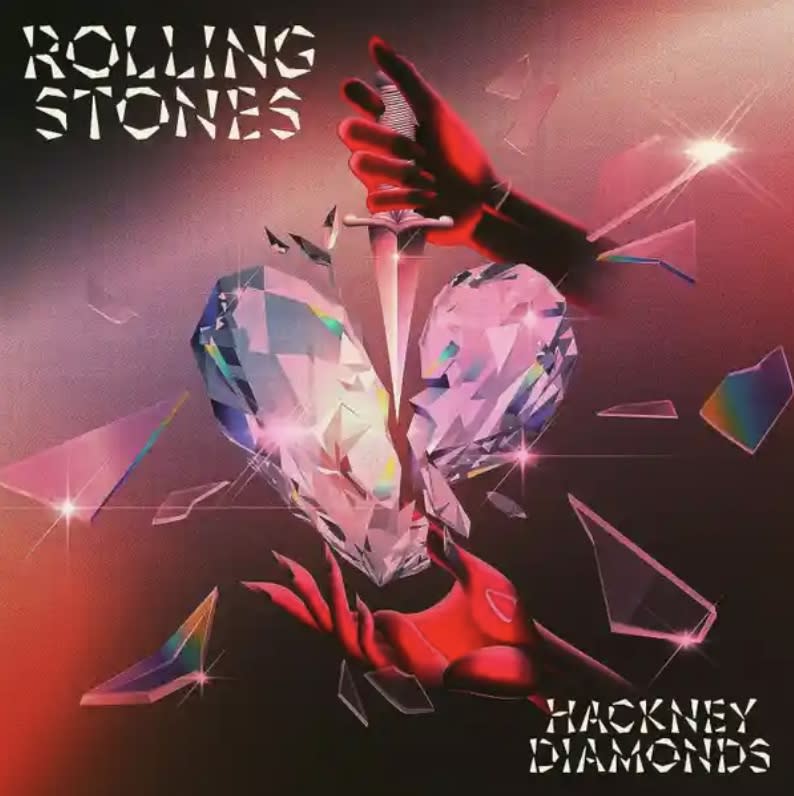Using Dumble-modded Fender Twins and the "Stay With Me" Zemaitis, Keith Richards and Ronnie Wood grace The Rolling Stones' comeback album with some of their finest fretwork in decades

You'd be forgiven for greeting the announcement of The Rolling Stones' Hackney Diamonds – their new first album of original material in 18 years – with a bit of skepticism.
For one, the band lost Charlie Watts – the ever-steady drummer who was a cornerstone of their sound and, other than Mick Jagger and Keith Richards, the band's sole constant member over the last 60 years – in 2021.
Then, there was Hackney Diamonds' inevitable high-profile rollout – a live-streamed Q&A with Jimmy Fallon, and a music video featuring Hollywood it-girl Sydney Sweeney.
Granted, the band have earned their imperial status many, many times over, but the main question hanging over all this pomp and circumstance was clear: can the Rolling Stones – now together for over 60 years, and whose principal members are either in or rapidly approaching their 80s – still make a great record?
Well, let's start the answer with the song that got the aforementioned glossy video treatment – Hackney Diamonds' opener and lead single, Angry.
Angry greets listeners – from its opening bars – with a striking illustration of what's old and what's new with this rock institution. On the latter front, there's the backbeat from new drummer Steve Jordan – steady, like Watts, but significantly more muscular. On the former, though, there's Ronnie Wood and Mr. Keith Richards.
Reminiscent of the none-more-iconic opening riff to the Stones' last true mega-hit, Start Me Up, Keef's rhythm guitar hook makes Mick Jagger's job on Angry a whole lot easier, freeing him up to swoon and shout to his heart's content. Jagger, a great-grandfather of three, cries “We haven't made love and I wanna know whyyyyyyy” as Richards and Wood dutifully keep up the riffwork behind him. It's familiar. It works. It's fantastic.
Off to a flying start, the album then serves up the phenomenal Get Close, a swaggering rocker with an absolutely dynamite riff – arguably Keef's finest of the 21st century to the date. His interplay with Wood is spellbinding, and fits like a puzzle piece with Jordan's strutting backbeat and the celebratory sax solo that enters the picture around the song's halfway point.
Richards recently told Guitar Player that the Stones are “all about teamwork,” and it's the enduring strength of that spirit that really makes Hackney Diamonds shine. Just listen to Depending On You, where the band's two-guitar tandem recede and let Jagger do the melodic heavy lifting, especially in the song's soaring chorus. Keef sits back and reacts to Jagger with evocative fills and responses – just as stellar a supporting player as he was in his prime.

Darryl Jones, the Stones' long-serving live bassist, was unable to contribute to Hackney Diamonds due to other commitments, leaving a low-end gap that was filled by Richards, Wood, and even the band's former bass guitar player, Bill Wyman. Another bassist to feature on the album is a lefty you might have heard of, named Paul McCartney.
Just as Jordan gave the band some 21st century muscle on drums, the rotating carousel of bassists makes for some colorful, convention-breaking moments, none more so than McCartney's fuzztastic four-string break on the roof-raiser Bite My Head Off.
Using a Univox Super Fuzz circuit-loaded ‘64 H?fner gifted to him by Hackney Diamonds producer Andrew Watt, McCartney makes the band sound more early-noughties NYC than Swinging Sixties London.
Watt brought to the studio five (!) amps that had been worked on by the great Alexander Dumble
It's far from the only time Watt – the superstar producer who, in just the last couple of years, has brought incredibly vital music out of veterans like Pearl Jam, Ozzy Osbourne, and Iggy Pop – and his vintage gear stable make a mark on the record.
Though Richards has long had the same guitar amp setup in the studio – a trio of enviable vintage Fenders and an early-Sixties Watkins Joker – Watt brought to the studio five (!) amps that had been worked on by the great Alexander Dumble, of which Richards took a particular shine to a Dumble-modded '58 Fender Twin.
Wood, meanwhile, alternated between his trusty mid-'50s-era Stratocaster, and the Zemaitis he used on the Faces' iconic song, Stay With Me.
It's a fantastic-sounding blend of the old and the new, gear-wise – perfectly reflective of how the Stones were able to let one of music's most in-demand producers fully take the reins on Hackney Diamonds, without losing their soul, or any of their still-ample charm.
Speaking of charm, after ripping through a number of other strong tracks – including the album's penultimate number, a stunning gospel blowout titled Sweet Sounds of Heaven – the Stones end their new album by taking things all the way back to the beginning. And we do mean all the way back.
Richards uses a 1930 Gibson L-4 acoustic given to him by Watt – and chosen for its similarity to the Gibson L-1 associated with Robert Johnson – to run through Muddy Waters' Rolling Stone Blues, the song that gave the Stones their name and that – incredibly, after all these years – the band had never covered.
With all of the tabloids they've appeared in, and all of the stadiums they've taken over around the world, the Stones end their new album with the simplest of acoustic blues jams. Close your eyes, and it'll sound like a window into what Mick and Keith's first rehearsals might have sounded like, over 60 years ago.
Richards has insisted that there is no greater meaning about the band's future in choosing to end the album with this cover, but either way, it's a perfect note on which to close a record that finds the Stones embracing new tools and new sounds, but never straying from their spirit and heritage. It makes you wonder why people still even bother telling the Greatest Rock 'n Roll Band in the World to 'hang it up already'...
